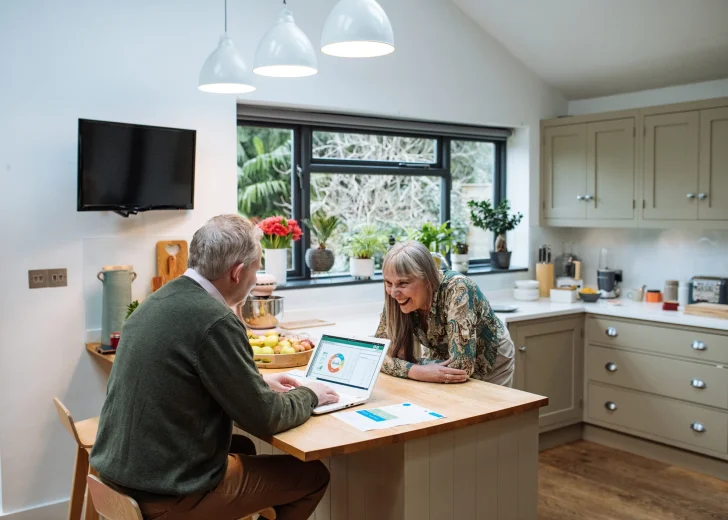For over 27 years, Draycott Nursing & Care has specialised in caring for individuals with dementia and Alzheimer’s, supporting them in the comfort and familiarity of their own home. As a nurse-led company, our care plans are flexible and adapt to the changing needs of those struggling with forms of dementia. Here we take a look at how to help people living with dementia and Alzheimer’s, including the benefits of a familiar environment, continuous routines, and building a support network at-home.

A familiar environment for dementia care
People living with dementia often benefit from structure and familiarity. Memory is closely tied to comfort and a familiar environment, so maintaining consistency can be a great support and is another example of the benefits of at-home care. Familiar objects, smells and sounds can all be sources of comfort for people living with dementia, as they can trigger a sense of calm that is sometimes hard to achieve in unfamiliar environments. A familiar environment might include a space filled with cherished family photos, a favourite song playing in the background, or the scent of a loved one’s perfume. The consistency and personalisation that at-home care provides is crucial for maintaining stability and comfort.
Draycott’s registered nurses and carers work closely with clients and their families to understand what they love, and what brings comfort. One of our carers, Fatima, who has been looking after one of our clients, has a great example of this. Fatima discovered that her client loves music, and even in the late stages of Alzheimer’s, she has a visceral reaction to songs she listened to and sang as a child. Because of this, Fatima has been able to bring a smile to her client’s face by bringing more music into the home.
Maintaining predictability and continuity for people with dementia
Maintaining a routine and predictability can really help people with dementia as they know what to expect, and it can help them to do things on their own. Routine activities such as washing, bathing and light exercises all support a person’s sense of control. The Alzheimer’s Association has highlighted that structured and pleasant activities can often reduce agitation and improve mood. Having an at-home carer can support this, as the carer can get to know the routines clients have done for years in their own home and maintain this consistency.
For example, one of our carers, Selina, looked after a gentleman in his 80’s living with dementia. When Selina first started caring for this client, he was struggling with maintaining a routine of personal care, which was linked to bad moods and agitated behaviour.
“I encouraged him to brush his teeth while I did it too. Often people with dementia don’t like to take instructions so you can’t just tell people what to do. It took about two weeks of brushing our teeth together before it became a habit for him to brush his teeth by himself.”
Having the support of specialised carers ensures advice and support from experienced professionals. Having worked with many clients with dementia, Draycott carers like Selina understand the necessity for continuity and routine.

Fostering independence and community engagement
The diagnosis of Alzheimer’s disease can be upsetting and scary, with people often fearing a loss of independence and control. This does not have to be the case, especially with the option of live-in or at home care. With a carer or a registered nurse coming in for either short visits, or a longer period, our clients can maintain a sense of independence and control over their home and environment.
Sometime people prefer to have carers popping in a few times a day. This could entail making a home-cooked meal, cleaning, domestic tasks like shopping or organising the household, or personal hygiene care. The benefit of our visiting care means that families have the comfort of knowing their loved one is being checked in on, while the client living with dementia can maintain independence and control. Building a support network such as this allows those struggling with Alzheimer’s or dementia to preserve their quality of life.
Alternatively, longer visits and 24-hour care allow for more comprehensive and holistic support. While maintaining familiarity and routine, which is so necessary as we’ve seen, continuous care at home ensures that immediate needs are taken care of, and families are reassured.
Our carers can also facilitate outings and socialising, helping clients stay connected with friends, family and community events. Participating in community activities, whether it’s a local club, a religious group or a social gathering, can significantly enhance the quality of life for someone living with dementia or Alzheimer’s disease. These interactions provide emotional support, mental stimulation, and a sense of belonging. By building a robust support network and fostering community engagement, we can help individuals with dementia and Alzheimer’s disease live fulfilling and empowered lives, surrounded by the familiarity and comfort of their own homes.





